Community

A SPORTING GOODS store in a nearby town announced last week that it was closing, after many years of operation. Here’s why I think that matters, even amid all the rest.
Yes, we are living through a terrible moment in American (and planetary) history. Almost every day features two things: More cruel tweeting from the president, and more unsettling data from the real world. It is a bizarre and disheartening mix: record meanness and crudity, record windspeeds and temperatures.
We must resist, of course, and we are: The ongoing mobilization of people of good conscience is the one sweet thing about these past months. We look toward, among other things, the midterm elections as a moment when we might start to pull out of the nosedive. But resistance will not, even at its most successful, entirely erase our problems anytime soon. Long before Trump we were facing impossible inequality and impossible ice-melt. Along with resistance, we need ... neighbors.
Neighbors were optional for much of the last 50 years. We became hyper-individualists—surveys show that three-quarters of Americans have no relationship with their next-door neighbors, which is a novel situation for humans. But in the next 50 years, we’re going to need our neighbors again. The fat years are past and the lean years are upon us—even as we try to rebuild our planet against the predations of the rich and powerful, we’re going to require stronger communities for sheer survival. Ask the people trying to recover from Hurricane Harvey, from Maria, from the firestorm that raked California.
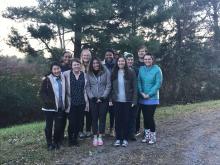
I was the first intern of Cycle 34 to arrive at the Sojourners intern house in Washington, D.C., in August. An incredibly generous staff member picked me up from the airport, drove me the hour back to the house, and left me to settle into my new home (later I learned that this type of generosity was just a part of the job at Sojourners, but that is another story altogether).
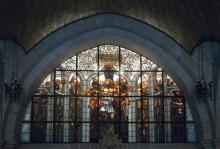
Among the victims of police brutality was none other than Christ himself. While this notion conjures up mixed emotions — including unbearable sadness — we should also take heart. Jesus experienced and overcame police brutality — so can innocent, powerless black women and men. To do so, churches with those most affected by police violence in attendance must cultivate a liberating praxis of anti-oppression retaliation, which includes teaching the characteristics of Christ’s response to law enforcement victimization. The writings of the great theologian James Cone, and others after him allowed us to rip the misguided veil of blasphemy and usher black people into a newfound solidarity with Jesus of Nazareth.
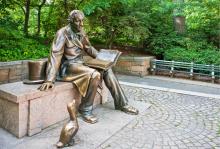
A starting point is recognizing the truth that war is never noble or courageous. Noble and courageous acts occur during war, but war itself is always the ultimate human failure and must never be portrayed as anything else. War is the expression of our worst impulses — killing and maiming one another while destroying the many good things we've built together.

Self-care is important. If we lose our enthusiasm and start going through the motions, we’re not much good to anyone — including ourselves. Our love is diminished when we lose our sense of connectedness to the source of love, awe, and wonder. Our lives are diminished, too.

The assumed exceptionalism and excessive triumphalism of the American church conflicts with the biblical call for humility as evidenced by lament. The practice of lament in the Bible confronts our American Christian assumptions. Biblical lament calls for honesty and truth-telling about the broken state of society and the individual. As such, the excessive triumphalism of American society has nearly quashed a necessary countercultural practice.

Without any input from the centralized government, the Afghan Peace Volunteers build community and share resources. Within Kabul, they arrange inter-ethnic activities and projects, distribute food, educate children, and manufacture heavy blankets to help families survive the harsh winters. They risk their lives to relate with people whom they are told are their enemies.
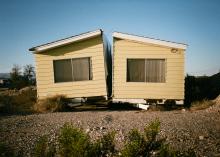
Repairing isn’t as easy as it sounds. It’s rarely as straightforward as we hope for. And sometimes it’s downright costly, or worse, impossible. If the church wants to be a part of repairing entire communities, we need to be willing to do at least three things: Gather the experts, put in the time, and give and live sacrificially.

For black women, our trauma is by nature political. Our very embodiment places us in a never-ending cycle of entanglement with systems, people, and policies designed to perpetuate violence and domination.
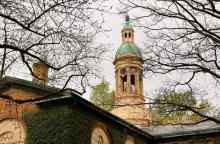
Perhaps one reason the events played out differently at Princeton is because folks there insisted on seeing one another as members of a community, participants in the one Body of Christ, and in that spirit mustered what Dietrich Bonhoeffer once called the “ministry of bearing” essential to maintaining community. In 1938 Bonhoeffer wrote a book about his own seminary called Life Together, in which he emphasized that the enjoyment of fellowship with other Christians is a privilege, a gift of God’s grace. But he also understood that the church is a human community, and therefore not immune from conflict. Christians, he said, ideally respond to their inevitable conflict with a reassertion of mutual care and intentional practices of community building in the name of Christ.

Salvation cannot remain an individualized spiritualized concept. When the psalmists called out for salvation, they meant salvation from present suffering and danger. When the crowd shouted “Hosanna” at Jesus’ arrival in Jerusalem, they weren’t referring to the afterlife. When we talk about salvation in the context of our warming climate, we mean deliverance from the most destructive force our species has ever faced. When it comes to climate change, we have to think about community and salvation in a global sense. We must start to recognize that our communities are mutually dependent upon each other.
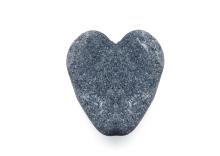
It is the tragedy of Christianity that the first hate crime in our constellation of texts is Matthew’s, in his telling the story of the passion. Jesus was a great teacher, an inspiring healer, and a man whose radical compassion touched everyone — women without honor, under-employed fisher folk, Roman soldiers, gentiles, Samaritans, scholarly Pharisees. The hearts of Palestinian Jews flocked to him, and this terrified the Romans. They tried to abort his movement by making his death a spectacle of cruelty and unutterable degradation.

The Rev. Leah Daughtry stood in front of fellow black Christian leaders and told them they will need to work harder for social justice.
“If you’ve been feeding them, now clothe them,” said the Pentecostal pastor and 2016 CEO of the Democratic National Convention Committee at a conference last week. “If you’ve been clothing them, now console them. If you’ve been at a march, now lead the march. If you’ve been at a rally, now organize the rally.”

During the first few weeks of the Trump administration, we’ve seen increased pressure on Muslim and immigrant communities in the United States.
In the face of these threats, which Marvel superhero might be best equipped to defend the people, ideals, and institutions under attack? Some comic fans and critics are pointing to Kamala Khan, the new Ms. Marvel.

Some of the boys involved in carrying out those acts in December we know, and we know their parents. The parents we do know are not frothing-at-the-mouth bigots. We can’t imagine their sons learned racist ideas at home.
But they learned them somewhere.
Racists and bullies aren’t born. They are made.
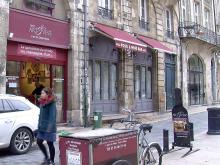
Across Europe, governments and local communities are searching for ways to counter extremism after a wave of largely homegrown terrorist attacks.The question is all the more important for France, the target of three terror strikes in two years, and Western Europe’s biggest exporter of extremist fighters.Yet while countries such as Britain, Denmark and Germany have long been involved in deradicalization efforts, France is a relative newcomer to such programs. Some believe the country’s fiercely secular mindset and conflicted relationship with Islam pose additional obstacles.

We have lost touch with the deep significance of work by separating the dignity, creativity, and livelihood of work from the individual person. In today’s emphasis on consumer capitalism — results and products — we have forgotten the interconnectedness of all our work, and the way we are baptized into the human community and live out that baptism through participating in purposeful work with our hands and feet.

I saw ailing patients. I saw the neighborhoods surrounding Hartford Hospital, which belie the city’s reputation as the home of pin-striped actuaries bored with their BMWs. Connecticut’s capital is, in fact, one of the nation’s poorest communities, its many marginalized Hispanic and African American neighborhoods barely seen by the BMW drivers. The cerebral palsy victims trapped in their bodies; MS patients; old women fumbling for change on the bus while hooked up to portable oxygen; old men wheezing with emphysema. So many people we barely see — and I was one of them.
I took solace in knowing that Jesus makes a bee-line for my new world.

I am a big believer in shaking things up and approaching ideas through an unexpected perspective. Like the billboard I saw in Minnesota: It read, at the top, “Minnesota Cremation Society.” In the middle was a photo of a casket, and underneath, it read, “Think outside the box.”
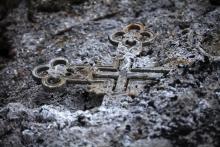
Without his community of his sisters and family, who have been mourning his death and questioning God for not saving their brother and friend, Lazarus would remain entombed. Without community, we remain bound and entombed. I’m not saying that our actions are as great as Jesus raising someone from the dead. But I am saying that God entrusts us with living into community, so that we may welcome our brothers and sisters out of death and into life.